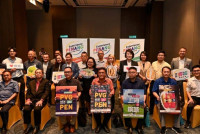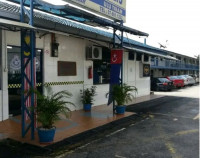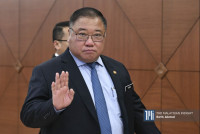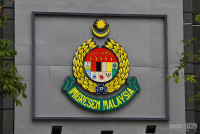
NO Malaysian law requires the use of, or even defines, the term “Made in Malaysia”.
The only rules with regard to country-of-origin labelling are in the Food Regulations 1985. These require all food labels to carry the name and business address of the manufacturer or packer, or the owner of the rights of manufacturing or packing, or their agent.
In the case of imported food, there is also the requirement for the name and business address of the importer in Malaysia, and the name of the country of origin.
The Trade Description Act 2011 (TDA) does not mandate information as to the place of origin of a product. However, it does provide that it is an offence to make a false trade description, including in relation to the place of manufacture or produce.
An identical provision in the Australian Competition and Consumer Act 2010 has been the basis of much litigation on the matter. The then Australian customs and consumer affairs minister observed that the court decisions themselves have created considerable confusion.
In Malaysia, the absence of any law or even guidelines on country-of-origin rules has resulted in a variety of labelling forms being used. This includes a “Made in Malaysia” mark even when the label provides the address of a foreign manufacturer and local importer.
Products in the Malaysian marketplace carry an array of ambiguous country-of-origin claims, using such words as “made”, “produced”, “assembled”, “grown”, “manufactured”, “built” and “designed”. These words often obfuscate rather than inform. They undermine the value of country-of-origin claims.
There needs to be fair rules on country-of-origin labelling that the industry can follow and consumers can understand.
Certificates of country of origin
Country-of-origin certificates are granted by an exporting country to facilitate its exports to obtain preferential treatment in the importing country, including with regard to import tariffs. The certification is governed by rules of origin, which are determined by each importing country.
However, if a country is a member of any of the estimated 450 bilateral and multilateral free trade agreements (FTAs) that currently exist, the applicable rules of origin are those specified in the relevant FTA.
The certification of goods as being of Malaysian origin is done by the International Trade and Industry Ministry (Miti) and enforced by the Customs Department. For certification, Miti needs to be cognisant of the excruciatingly detailed rules of origin specified in the seven bilateral FTAs that Malaysia is a party to, as well as the seven FTAs that Asean is a party to.
There are multiple rules of origin in the FTAs administered by Miti.
All the FTAs grant preferential status to products that are obtained in Malaysia or produced 100% with products obtained in Malaysia. Exports not so categorised will also be granted preferential status if they meet the specified conditions.
There is a regional value content (RVC) condition for finished products made with imported produce. They must have at least 40% of the content originating from within the territory of the FTA partners.
In the case of the Asean Trade in Goods Agreement, raw materials and inputs can be imported from other Asean countries, and can be cumulated for the purpose of calculating the RVC. The Malaysia-Australia FTA permits raw materials or inputs imported from Australia to also be cumulated for the purpose of calculating the RVC.
There is also a substantial transformation rule that permits the use of raw materials or inputs from non-parties to the FTA, but the finished products are required to have undergone a substantial transformation. Substantial transformation is typically determined by meeting the required amount of local value added.
The local value added varies between FTAs. Most, though not all, require 40% local added value; the Malaysia-India Comprehensive Economic Cooperation Agreement only requires 35%. In addition to local added value, there may also be specified process tests, especially for chemicals, or a requirement that the product achieves a change in tariff classification.
The above variations in the rules of origin of course can result, albeit in exceptional cases, in the same product being categorised as being of Malaysian origin under some FTAs, and not so under others.
Country-of-origin certificates are only for customs purposes. Once within a country, the goods are governed by the product-labelling laws of that country, including those that pertain to the country-of-origin designation.
Rationalise Malaysia’s labelling laws
For the recently relaunched Buy Malaysia Campaign, the ministry requires participating products to be manufactured in Malaysia and contain at least 51% Malaysian material or content. The expansive definition of the word “manufacture” in the Industrial Coordination Act 1975 may permit handicraft to be considered as manufactured, but unprocessed farm produce, fisheries products and minerals still do not qualify.
Parts V and VI of the TDA empower the domestic trade and consumer affairs minister to issue definition orders and require both imported and local products offered for sale in Malaysia to be labelled with specified information markings.
This power was exercised by the minister as early as 1975 to regulate the use of the expression “halal” on product labels. Those orders are with modifications now contained in the Trade Description (Definition of Halal) Order 2011 and Trade Description (Certification and Marking of Halal) Order 2011.
This is a power the minister needs to exercise to define the country-of-origin terms that may be used on product labels.
It is proposed that Malaysian products be marked as either “Produce of Malaysia” or “Made in Malaysia”.
Produce of Malaysia will be where all of the significant ingredients or components of the product come from Malaysia, and virtually all of the production/manufacturing process associated with the product occurs within Malaysia. This will be a premium label.
Made in Malaysia will be products made with local or foreign intermediate products, but must have undergone a substantial transformation in Malaysia and have at least 51% local value added by way of Malaysian goods and services.
Identical country-of-origin rules must also be required for imported goods sold in the Malaysian marketplace.
The custodian of the country-of-origin labelling of products offered in Malaysia is the Domestic Trade and Consumer Affairs Ministry. The country-of-origin certification for export will continue to be managed by Miti and enforced by the Customs Department.
Include services in local value added
“Local value added” is a measure of the extra value created over and above the original value of the imported inputs. Different FTAs specify different ways of calculating local value added. Not all include the local services added for determining local value added.
Since 2013, there has been a joint OECD-WTO Database on Trade in Value Added (TiVA) that measures the local value added in terms of both the local goods and services added in the manufacture of the product.
The methodology adopted in TiVA can serve as the basis to determine local value added for products sold in Malaysia, both local and imported. This should not pose a problem since it is the Statistics Department that submits the Malaysian data for the TiVA database. – The Vibes, November 24, 2020
Prof Datuk Sothi Rachagan is an academic and consumer advocate, having been dean of Universiti Malaya’s Law Faculty and president of Consumers International, among many national and international positions



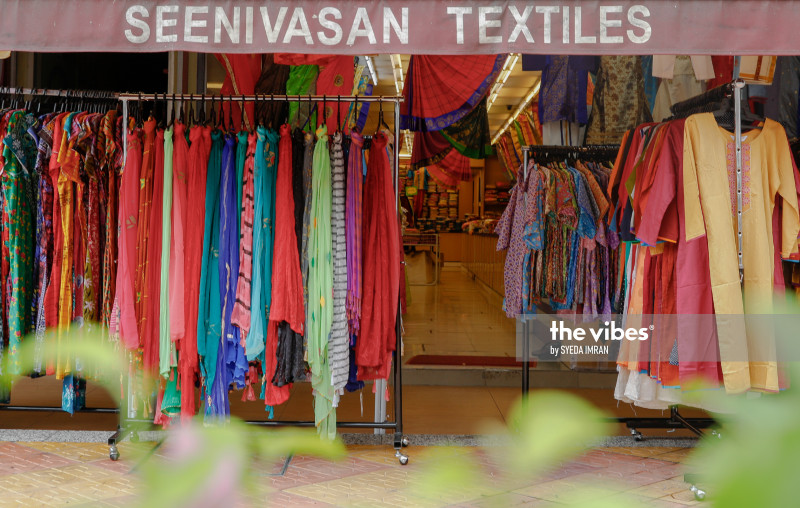

.JPG)
